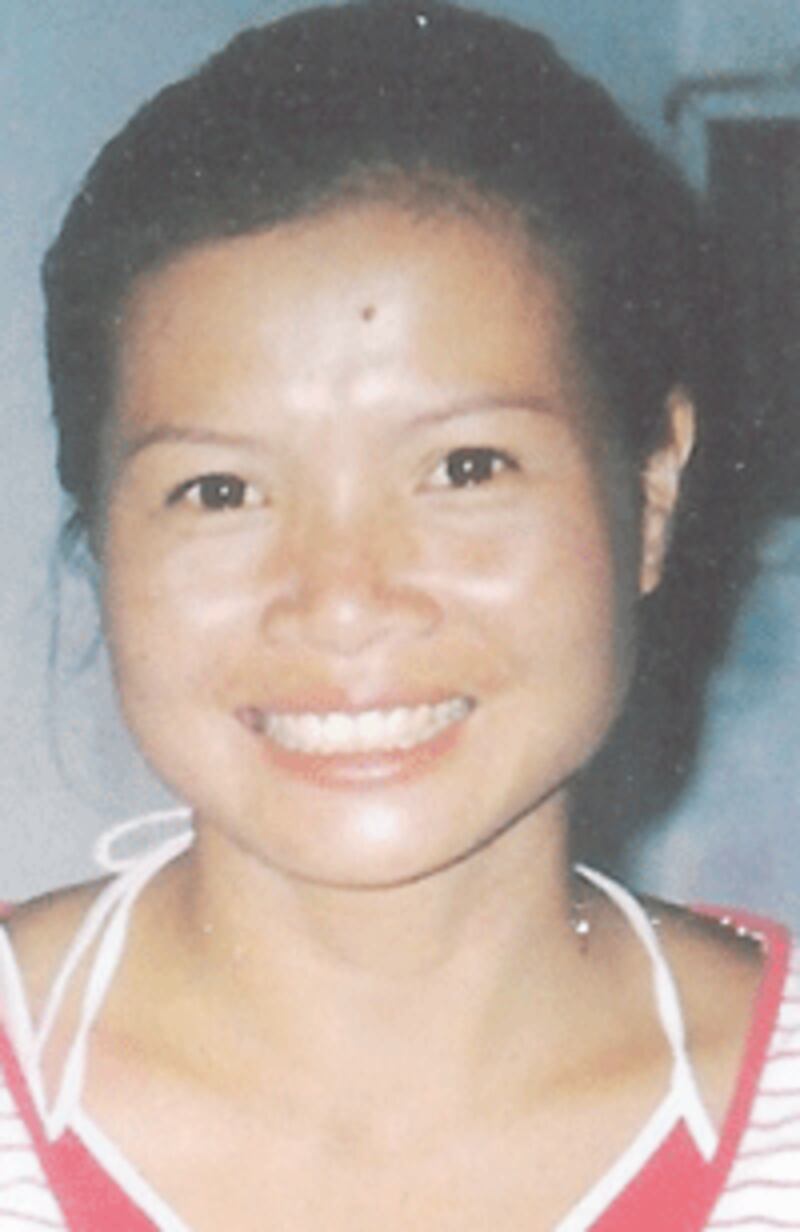Undeterred by a three-month detention and defying warnings from the authorities, a Lao activist is refusing to vacate land she had occupied for years and which has been identified for a government road expansion project.
Sivanxay Phommarath said she has begun construction of her house on the contentious plot of land in Khammouane province’s Nhommalath district despite being notified by the government that the area would have to be vacated for expansion of a road near the Nam Theun 2—the country’s largest hydroelectric dam.
Sivanxay, who was detained in 2012 after leading efforts to discuss adequate compensation for villagers affected by the road project, said she will not vacate her land unless the government gives her a comparable plot on which to build a home or a shop to support her family.
Most of her neighbors who have “good connections” with the authorities have left the area after receiving alternative plots of land and financial compensation, she said.

Sivanxay told RFA’s Lao Service that since her release from detention in February last year, the government has yet to respond to her demand, so she decided to build a new home in defiance of an official announcement that the adjacent road would be expanded by 25 meters (80 feet).
“I am building a new house on the lot because the hut I currently live in [often becomes] flooded,” she said, adding that she decided to build close to the road so that she can also run a small shop, despite the fact that the structure lies within the zone earmarked in 2012 for the road project.
“I am still confident that this land is mine because I pay property taxes every year. If I am asked to leave again, I will do so as long as I am compensated according to my previous demand.”
All of the area’s other residents have accepted compensation offers from the government and either moved or say they are ready to do so when the project begins, according to local officials.
It is unclear when the project will break ground, and it may have been stalled due to budget problems, residents say.
Sivanxay said she is confident the authorities are aware that she is building her new home within the project zone “because they drive to work past my house every day.”
She said no one from the local government has spoken to her about taking down the structure, other than to warn her that it is being built too close to the road and needs to be situated more than 25 meters away.
A Nhommalath official told RFA recently that the majority of villagers in the area had already moved and that those who hadn’t were “prepared to move as soon as authorities ask,” except for Sivanxay.
Speaking on condition of anonymity, the official said that if Sivanxay refuses to vacate she will lose 25 meters of her land to the road project, and that the remaining plot would provide her, her husband, and their two-year-old child with little room to live.
But Sivanxay said she will hold out because she has not been promised anything better as part of a relocation package.
“Yes, many villagers have moved because they have good connections with the authorities, so they have received good compensation and land,” she said.
“But me? I don't have a good relationship with the officials, so I won't get anything as good.”
Seeking compensation
Authorities released Phommarath from detention after she paid a 700,000 kip (U.S. $88) fine and promised that she and her husband Soukphaouane Phommarath would refrain from taking part in any “unlawful” actions.
Sivanxay was detained in October 2012 after she led more than 20 people from Nhommalath district to meet with an unknown person in Savannakhet province the group believed would help them get better compensation for land being taken over by the road expansion.
After finding no one at the planned meeting spot—on a bridge over the Mekong River on the Thai-Lao border—the villagers returned home to Nhommalath but were taken into custody for questioning from authorities on the reason for their trip.
When Sivanxay refused to divulge information about the person she was supposed to meet, she was charged with inciting social disorder and taken to the Khammouane provincial prison on Nov. 19, 2012.
Authorities gave no explanation for her sudden release after being held incommunicado.
She said at the time that the conditions set by the authorities for her release stipulated that she and her husband “will not make any propaganda, incite groups of people to carry out unlawful acts in any way, will be good citizens socially and will not break any Lao laws.”
Since all land in Laos is owned by the state, residents can be forced off their land with little or no compensation as they are pushed out to make room for development projects.
Lawmakers have expressed concern that inadequate land surveys ahead of major development projects have led to a rash of complaints over encroachment on villagers' land and created a range of environmental problems, according to the state-owned Vientiane Times newspaper.
Reported by RFA’s Lao Service. Translated by Max Avary. Written in English by Joshua Lipes.
